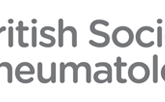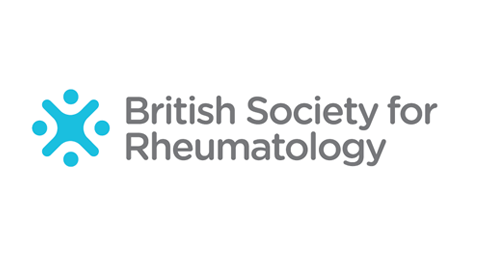
British Society for Rheumatology publishes first UK guideline for the management of adults with Primary Sjögrens Syndrome
The first UK guideline on the care of adults with Primary Sjögren’s Syndrome has been published today by the British Society of Rheumatology. The guidelines are accredited by the National Institute for Health and Care Excellence (NICE) which recognises robust, evidence-based and critically evaluated high-quality processes applied to developing a clinical guideline.
Clinical guidelines are particularly important for patients with less common conditions like Sjögren’s because health professionals can lack confidence in managing treatment and care. Sjögren’s is a chronic, debilitating, multi-system condition predominantly affecting the moisture producing glands of the body, but also causing systemic effects. Patients often see health professionals from several different specialities because of the varied symptoms but health professionals are still quite likely to under-estimate the overall burden of their disease. The new guideline tackles that. It is a pragmatic, practical guide to management with straightforward advice and includes both non-pharmacological and pharmacological treatments.
Not only will the guideline be of particular interest to rheumatologists and other hospital based practitioners such as ophthalmologists, ear, nose and throat specialists, oral medicine experts and general physicians, but also dental practitioners, general practitioners and nurses. Patients struggle with the chronicity of the condition and are frustrated by the paucity of treatment and lack of medical knowledge about how best to manage it – this guideline gives health professionals the guidance they need to manage these patients.
The guideline was written by specialists from across the UK, alongside patients with the condition. The Guideline Working Group included an expert patient, a GP and an occupational therapist with a special interest in the fatigue and sleep problems suffered by patients with Sjögren’s and other chronic inflammatory conditions.
The guideline clarifies care of the dry eyes and mouth with special reference to oral candida and salivary gland enlargement. It extends into treatment of systemic disease and the assessment and management of pregnancy in affected women. Pharmacological treatments for systemic disease are extensively covered alongside helpful guidance on treatments that are not recommended.
Recommendations are not confined to the wholly medical. The guideline includes advice that will help patients to self-manage. Advice on reporting any painless glandular swelling that doesn’t settle due to the increased risk of lymphoma is recommended as is the provision of written information and details of appropriate support groups, on-line resources and graded exercise programmes for fatigue.
The guideline was published on 29 June 2017 in the Rheumatology Journal and is available to view, along with a full suite of guidelines, at www.rheumatology.org.uk/Knowledge/Excellence/Guidelines.
Liz Price, Consultant Rheumatologist with an interest in Sjögren’s Syndrome and lead author, commented: “I have a long-standing interest in the condition and have looked after many patients with it over the years. Patients and health professionals came together after identifying that the absence of a guideline was a problem we could solve together. I’m delighted to have played a part, working with a group of like-minded and committed individuals to create it. I’m certain that once implemented it will make a big difference to patients by improving the treatment and care they receive from their health professionals.
Bridget Crampton, patient representative on the Guideline Working Group and Team Leader on the helpline at the self-help charity British Sjögren’s Syndrome Association said: “I was very happy to be involved in this; it’s really important these vital medical guidelines include input from patients – they will clarify and standardise the diagnosis and treatment of people with Sjögren’s syndrome. We really need faster recognition and thus treatment of the condition. At present this can be a painfully slow process. I hope this guideline will be used in every GP practice and throughout the NHS.”
Elizabeth MacPhie, Consultant Rheumatologist and Chair of the British Society for Rheumatology’s Standards, Audit and Guidelines Working Group added: “Condition specific guidelines are so important for ironing out inconsistencies in practice and putting the evidence base at the heart of what we can do for our patients. Now we have published the Sjögren’s guideline the next challenge is raising awareness of it – colleagues both inside and beyond the speciality of rheumatology must know the Sjögren’s guideline is out there and ready to use”.

